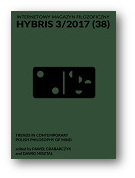Just how conservative is conservative predictive processing?
Just how conservative is conservative predictive processing?
Author(s): Paweł GładziejewskiSubject(s): Anthropology, Psychology, Cognitive Psychology
Published by: Wydawnictwo Uniwersytetu Łódzkiego
Keywords: embodied cognition; enactivism; Free Energy Principle; inference; internalism; Predictive Processing; mental representation;
Summary/Abstract: Predictive Processing (PP) framework construes perception and action (and perhaps other cognitive phenomena) as a matter of minimizing prediction error, i.e. the mismatch between the sensory input and sensory predictions generated by a hierarchically organized statistical model. There is a question of how PP fits into the debate between traditional, neurocentric and representation-heavy approaches in cognitive science and those approaches that see cognition as embodied, environmentally embedded, extended and(largely) representation-free. In the present paper, I aim to investigate and clarify the cognitivist or ‘conservative’ reading of PP. I argue that the conservative commitments of PP can be divided into three distinct categories: (1) representational, (2) inferentialism, and (3) internalism.I show how these commitments and their relations should be understoodand argue for an interpretation of each that is both non-trivial and largely ecumenical towards the 4E literature. Conservative PP is as progressive as conservatism gets.
Journal: Internetowy Magazyn Filozoficzny HYBRIS
- Issue Year: 2017
- Issue No: 38
- Page Range: 98-122
- Page Count: 25
- Language: English

